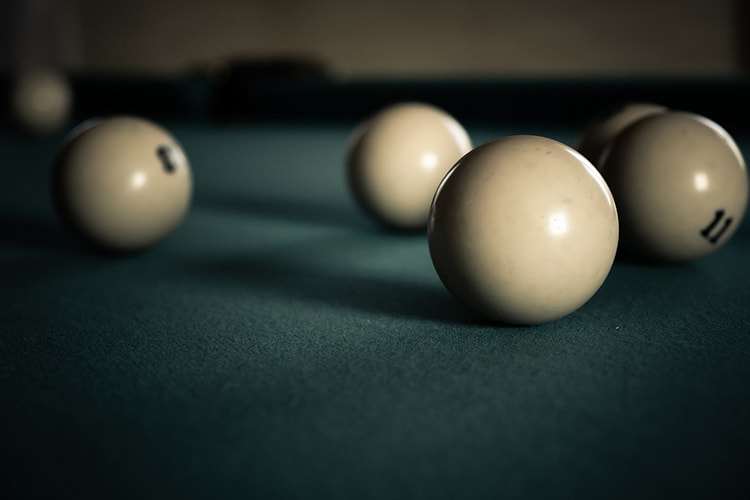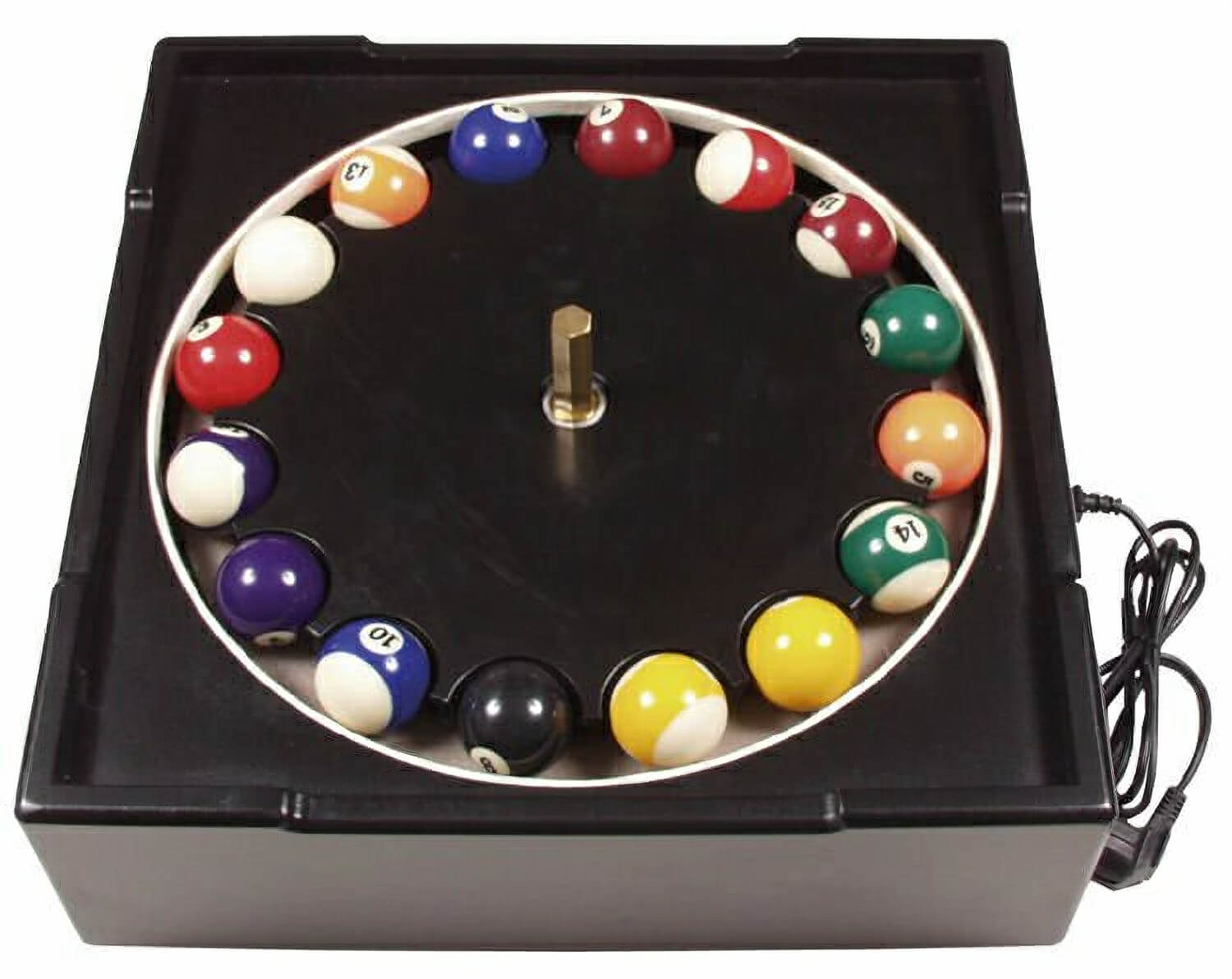What makes the difference between a good pool game and a great one? The answer, perhaps surprisingly, lies in the often-overlooked condition of your pool balls. A clean, polished set of balls not only enhances the aesthetics of the game but also significantly impacts playability, ensuring a smoother roll, more accurate shots, and a more enjoyable experience for everyone involved.
Maintaining your pool balls in top condition is more than just a matter of pride; it's a crucial element in maximizing your enjoyment of the game. But how do you achieve that perfect shine and keep your balls rolling true? The following guide will help you understand the intricacies of cleaning and polishing, ensuring your pool set remains in peak performance.
| Issue: | Dull Pool Balls and Reduced Performance |
| Solution: | Cleaning, Polishing, and Maintenance |
| Key Components: | Pool Ball Polish, Microfiber Cloth, Cleaning Machine (optional) |
| Benefits: | Improved Ball Roll, Reduced Chalk Transfer, Enhanced Aesthetics, Extended Ball Lifespan |
| Best Practice: | Use a pool ball cleaner, polish, and dedicated products |
| Frequency: | Regular Cleaning (after each game) and Polishing (as needed, depending on use) |
| Reference: | Billiards.com |
The journey to revitalized pool balls begins with understanding the enemy: dirt, chalk, and grime. These elements accumulate during gameplay, affecting the ball's surface and, consequently, its performance. Chalk, essential for cue grip, can be a significant culprit, transferring to the object balls and creating a film that hinders smooth rolling and accurate shots. Similarly, accumulated dirt from hands, the table, and the environment dulls the balls and reduces their responsiveness.
The best way to polish dull pool balls is by using polishing or restoring liquid designed explicitly for pool balls. This ensures that you're using a product formulated for the specific materials and coatings used in pool ball construction. These liquids are usually composed of fine abrasives that gently remove contaminants without damaging the ball's surface. Remember, the goal is restoration, not abrasion.
You have two primary methods: hand polishing or using a billiard ball cleaning machine. Hand polishing offers a personal touch and greater control, allowing you to address specific problem areas on each ball. However, it's more labor-intensive. Billiard ball cleaning machines automate the process, offering convenience and consistent results, especially for those who play frequently.
Don't let the process seem daunting. Polishing pool balls at home is simpler than you might think. The essential materials include a soft microfiber cloth, dedicated pool ball polish (or, in a pinch, high-quality car polish), and optional protective gloves to keep your hands clean. Before you start, give the balls a thorough cleaning to remove any surface dirt. This step is crucial, as it prevents the polish from grinding dirt into the ball's surface.
Polishing your pool balls is essential for maintaining their shine and performance. This article explores the best techniques and products to restore the luster of your balls, ensuring a smoother gameplay and enhanced aesthetics. It's about discovering the secrets to keeping your pool set in top condition! This simple practice can make a big difference in your game.
A commercially available ball polish is a common method for polishing pool balls. These products are specifically designed to clean, polish, and protect the surface. They are relatively easy to use: apply a small amount to a clean cloth and rub it over the surface of each ball, using a circular motion. Follow the product's instructions for drying and buffing.
The process significantly enhances performance. Start by cleaning the balls with warm, soapy water to remove any surface dirt. This pre-cleaning step removes loose debris, ensuring the polish can work directly on the ball's surface. After cleaning, rinse the balls thoroughly and allow them to dry before polishing.
For many, the question isn't "What is the best method for cleaning pool balls?" but rather, "Is there a better way to clean them than what I'm doing now?" Some players use a ball polisher and find that a film shows up on the balls after a few racks of play, and they also notice that chalk sticks to the cue ball and transfers to the object balls. In these instances, more specialized solutions are needed.
To polish the balls effectively, a certain level of abrasion is necessary. The key is to use extremely fine abrasives to avoid prematurely wearing down the balls. For older, worn balls with scratches, a wax can be applied to provide a smooth, slick surface. This method is particularly useful for older balls that may not respond well to standard polishing due to wear and tear.
One effective technique, seen in various pool rooms, involves gathering all the balls in a piece of pool table cloth or a towel, spraying or squirting a polishing agent (similar to Pledge) onto them, wrapping the towel into a bag, and vigorously swinging the bag from side to side. This method allows for even distribution of the polish and effective cleaning.
Beyond these manual methods, automated solutions exist, such as the Heioom pool ball cleaner, which provides an electronic approach to polishing. The Nuratit upgraded billiard ball cleaner and polisher offers another automatic solution for both British and American pool balls. These machines can be a worthwhile investment for serious players.
If your billiard balls are often covered in chalk, the key is regular cleaning. Chalk buildup can affect play. Following a guide to clean the billiard balls is essential, starting with warm, soapy water to remove surface dirt. After cleaning, apply a small amount of pool ball polish to a soft cloth and gently buff the balls in a circular motion.
Regular polishing is about more than just appearances; it's an investment in your game. Regularly polishing your billiard balls will ensure that any remaining dirt after washing is buffed off the ball. This step will increase your pool balls lifespan and guarantee that you have a consistent cue impact. You should never use a polish made from oil, such as wood polish, which can damage the balls.
If, after cleaning, the balls still appear dull, the final step is polishing. The best way to polish a pool ball at home is to use a polishing or restoring liquid made specifically for pool balls and apply it using a microfiber towel. The final result should be a set of balls that look and perform their best, ready for your next game.
Using car polish is not recommended as it can damage the surface of the balls and affect their performance. Stick to products designed for pool balls.



Detail Author:
- Name : Stephania Graham
- Email : nienow.emma@douglas.biz
- Birthdate : 1976-01-04
- Address : 1367 McKenzie Union Keltonland, OH 58872
- Phone : 240-828-7898
- Company : Larson Group
- Job : Correspondence Clerk
- Bio : Alias aperiam ea hic delectus earum ut. Molestias nesciunt ab tenetur non ut nulla aspernatur. Rem rerum omnis placeat modi. Qui vero aspernatur nostrum sapiente aut occaecati.